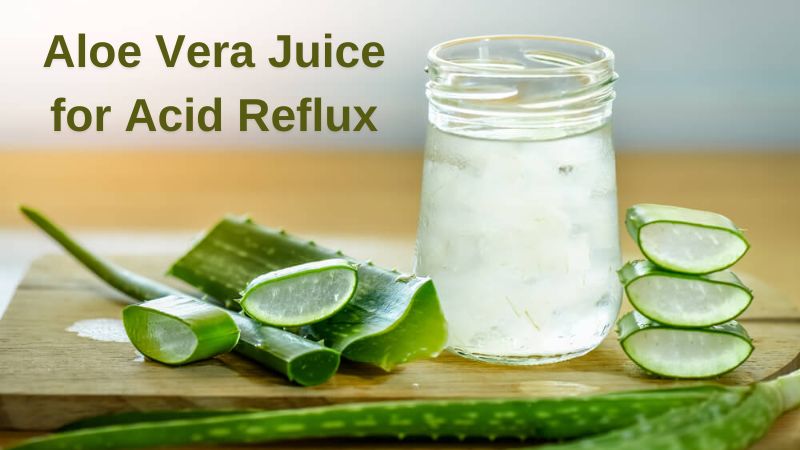Acid reflux, medically referred to as gastroesophageal reflux disease (GERD), is a prevalent gastrointestinal issue affecting a significant portion of the global population. Characterized by a sensation of burning in the chest, acid reflux occurs when stomach acid regurgitates into the esophagus. While pharmaceutical interventions are commonly employed to manage symptoms, many individuals seek alternative methods. In this comprehensive exploration, Nabm will delve into ten natural remedies for acid reflux that offer soothing relief without the potential adverse effects associated with pharmaceuticals.
10 Strategies for Natural Remedies for Acid Reflux
-
Apple Cider Vinegar:
Despite its acidic nature, apple cider vinegar is lauded as one of popular natural remedies for acid reflux. By restoring equilibrium to stomach pH levels, it aids in mitigating discomfort. Simply dilute a tablespoon of apple cider vinegar in a glass of water and consume it before meals to harness its potential benefits. However, it’s imperative to ensure proper dilution to prevent exacerbation of irritation.

-
Ginger:
Ginger, hailed for its digestive benefits since ancient times, stands as a formidable ally in the battle against acid reflux. Rich in anti-inflammatory compounds, ginger proves instrumental in mitigating esophageal irritation, offering a potent and natural remedy. Whether brewed into a comforting tea or consumed raw, ginger presents itself as a versatile and efficacious solution for alleviating symptoms of acid reflux, underscoring its enduring reputation as a time-honored digestive aid.
-
Chamomile Tea:
Known for its calming attributes, chamomile tea stands as another promising contender in assuaging acid reflux symptoms. Possessing anti-inflammatory characteristics, chamomile facilitates the soothing of the esophagus, thereby diminishing discomfort and irritation. Imbibing a cup of chamomile tea before bedtime serves to alleviate nocturnal symptoms while promoting restful sleep.
-
Aloe Vera Juice:
Aloe vera, renowned for its diverse therapeutic attributes, presents its juice as a potential remedy for individuals grappling with acid reflux. Intake of a small amount of aloe vera juice before meals holds promise in alleviating esophageal inflammation, offering relief from symptoms in a natural and gentle manner. Harnessing the soothing properties of aloe vera juice may serve as a beneficial addition to holistic approaches aimed at managing acid reflux and promoting digestive wellness.

-
Licorice:
Deglycyrrhizinated licorice (DGL), a processed variant of licorice devoid of glycyrrhizin—a compound linked to adverse effects—emerges as a formidable ally against acid reflux. DGL coats and fortifies the stomach lining, curtailing the occurrence of reflux episodes. Incorporating DGL supplements into one’s daily regimen may yield significant relief from symptoms.
-
Baking Soda:
Baking soda, scientifically known as sodium bicarbonate, is widely acknowledged for its effectiveness as an antacid, adept at neutralizing stomach acid. A quick remedy involves mixing a teaspoon of baking soda with water, providing rapid relief from acid reflux symptoms. Nevertheless, it’s crucial to consume it in moderation, as excessive intake can lead to electrolyte imbalances, emphasizing the importance of using this remedy judiciously for managing occasional bouts of acidity.
-
Elevate Your Head While Sleeping:
Elevating the head and upper body while sleeping constitutes a prudent strategy to prevent stomach acid refluxing into the esophagus. Employing a wedge pillow or augmenting the head of the bed with blocks serves to mitigate nocturnal symptoms, thereby fostering enhanced sleep quality.
-
Avoid Trigger Foods:
Numerous foods and beverages have the potential to exacerbate symptoms of acid reflux, necessitating caution or moderation in consumption. Spicy dishes, citrus fruits, tomatoes, caffeine, chocolate, and alcoholic beverages are among the prevalent triggers for acid reflux. By exercising discretion and limiting intake of these items, individuals can reduce the frequency and severity of symptoms, fostering improved digestive health and overall well-being.

-
Eat Smaller Meals:
Consumption of large meals exerts undue pressure on the stomach, precipitating acid reflux episodes. Opting for smaller, more frequent meals facilitates smoother digestion and reduces the likelihood of symptom manifestation. By embracing this dietary modification, individuals can mitigate discomfort and optimize digestive health.
-
Manage Stress:
Stress, recognized as a potent trigger for acid reflux, engenders increased stomach acid production and retards digestion. Incorporating stress-reduction techniques such as yoga, meditation, or deep breathing exercises into one’s daily routine is instrumental in managing symptoms. By ameliorating stress levels, individuals can attenuate the frequency and severity of acid reflux episodes, thereby enhancing overall well-being.
Conclusion:
Natural remedies for acid reflux offer a safe and efficacious alternative to conventional pharmaceutical interventions, furnishing soothing relief devoid of potential side effects. From apple cider vinegar and ginger to chamomile tea and aloe vera juice, a plethora of options exists for alleviating symptoms naturally. By integrating these remedies into one’s lifestyle and effecting dietary and lifestyle modifications, individuals can effectively manage acid reflux and bolster digestive health. Nonetheless, it is prudent to consult with a healthcare professional before embarking on any new regimen, particularly if underlying health conditions or medications are pertinent. With judicious implementation, relief from acid reflux is attainable, heralding improved comfort and well-being.